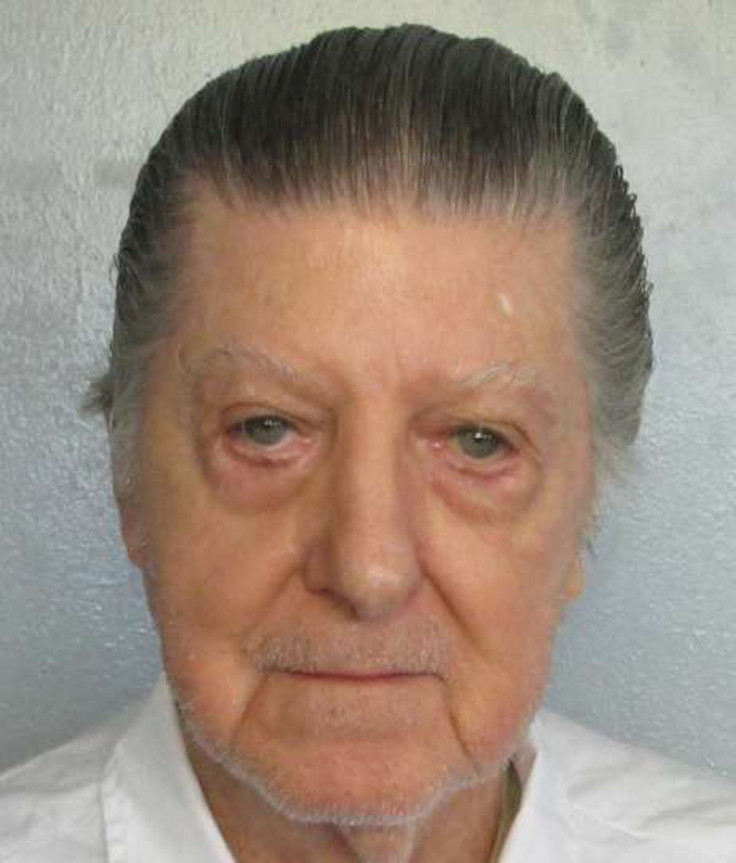Walter Leroy Moody Facts: Why Alabama Executed 83-Year-Old Inmate

The oldest death row inmate in Alabama — Walter Leroy Moody Jr. — was executed on Thursday.
Moody, 83, was the first inmate over the age of 80 put to death since executions were resumed in the 1970s in the United States. Moody was convicted of killing Judge Robert S. Vance, a member of the Atlanta-based 11th U.S. Circuit Court of Appeals, on Dec. 16, 1989, by sending a mail bomb.
Moody was executed by lethal injection at the Alabama prison at Atmore. He had no last statement and did not respond when an official asked if he had any last words shortly before the chemicals began flowing.
Key facts of the crime that led to the death sentence, include:
- Moody’s crime was motivated by a personal grudge. Although he has attended law school, he was forbidden from practicing law because of a 1972 pipe-bomb possession conviction that the 11th Circuit refused to overturn, CBS News reported.
- Moody mailed out a total of four package bombs in December 1989. Apart from the one which was addressed to Vance, another bomb detonated, killing its recipient — Robert E. Robinson, a black civil rights attorney from Savannah, Georgia. Two others were intercepted and diffused before they could go off.
- According to prosecutors, Vance was Moody’s only intended target. The three other bombs were planted in order to throw off the police and make them believe that the crimes were racially motivated and carried out by the Ku Klux Klan — the white supremacist secret society.
- One of the bombs went off in Vance’s kitchen when the judge was opening his mail after a morning of yard work and errands. The explosion destroyed his house in which the victim’s wife also suffered serious injuries.
- Moody was first convicted in 1991 in federal court and sentenced to seven life terms plus 400 years. Later, in 1996, he was convicted in state court and sentenced to death for his crimes.
- While in prison, awaiting his execution, Moody had sent a letter to Vance’s son, claiming he was innocent, and adding, “Had my Dad been murdered, I would want to know who had done it," Moody wrote. Vance Jr. had no doubts that Moody had killed his father.
In an attempt to avoid the death sentence, Moody’s attorneys argued at his clemency appeal that the victim himself was against capital punishment.
“The murder of Judge Vance was unprovoked and inexcusable. Judge Vance was, by all accounts, a devoted husband, caring father, and remarkable jurist. He was also, by all accounts, an opponent of capital punishment," Moody’s lawyer wrote to Gov. Kay Ivey (R-AL).
Vance Jr. countered the notion that his father was against death sentences, saying, “The point to emphasize is my Dad was personally opposed to the death penalty but always made clear that his personal feelings had to give way to the law.”
According to NBC affiliated WSFA, Ivey issued the following statements on the execution:
“I approach every execution by giving the condemned, and the issues raised by the underlying case, the careful consideration both deserve. My ultimate desire is to see justice rightly administered.
Mr. Moody was convicted of killing Federal Judge Robert Vance and severely injuring Judge Vance’s wife with a bomb purposefully created to kill and maim. The crimes committed by Mr. Moody were intentional, well-planned and aimed at inflicting the most possible harm. A jury found him guilty beyond a reasonable doubt and his conviction has been upheld at every level of the judicial system.
For our system of government to work properly, the judiciary must be able to operate without undue outside influence. By targeting and murdering a respected jurist, Mr. Moody not only committed capital murder, he also sought to interrupt the flow of justice. After considering the facts of his horrendous and intentional crime, I have allowed Mr. Moody’s sentence to be carried out in accordance with the laws of this state and in the interest of ensuring justice for the victim and his family.”
© Copyright IBTimes 2024. All rights reserved.






















